Are you trying to land a job and you’re worried that your resume might not cut it?
- Maybe you recently graduated college and your interviews aren’t going as well as you had hoped.
- Maybe you decided to skip college and you’re trying to land your first job, or you’re applying for a job that says that it requires a college degree you don’t have.
- Maybe you’re changing careers and you’re not sure how to break into a new field.
You might think that not having the right experience is a massive obstacle to getting hired, especially if you don’t have a college degree.
We’re here to tell you there’s hope if you’re proactive and have the right attitude and habits.
Keep reading for our best tips on getting your foot in the door, including 3 crucial habits to build to set yourself apart from the crowd, top tips on making a good first impression, and tips on “using the side door” to fast-track your career.
3 Essential Habits to Help You Get Your Foot in the Door
The key to getting your foot in the door is fostering a go-getter attitude and building habits that bring you closer to your goals every day. Below, we’ve unpacked three essential habits that will make you the kind of person employers fall over themselves to hire and promote.
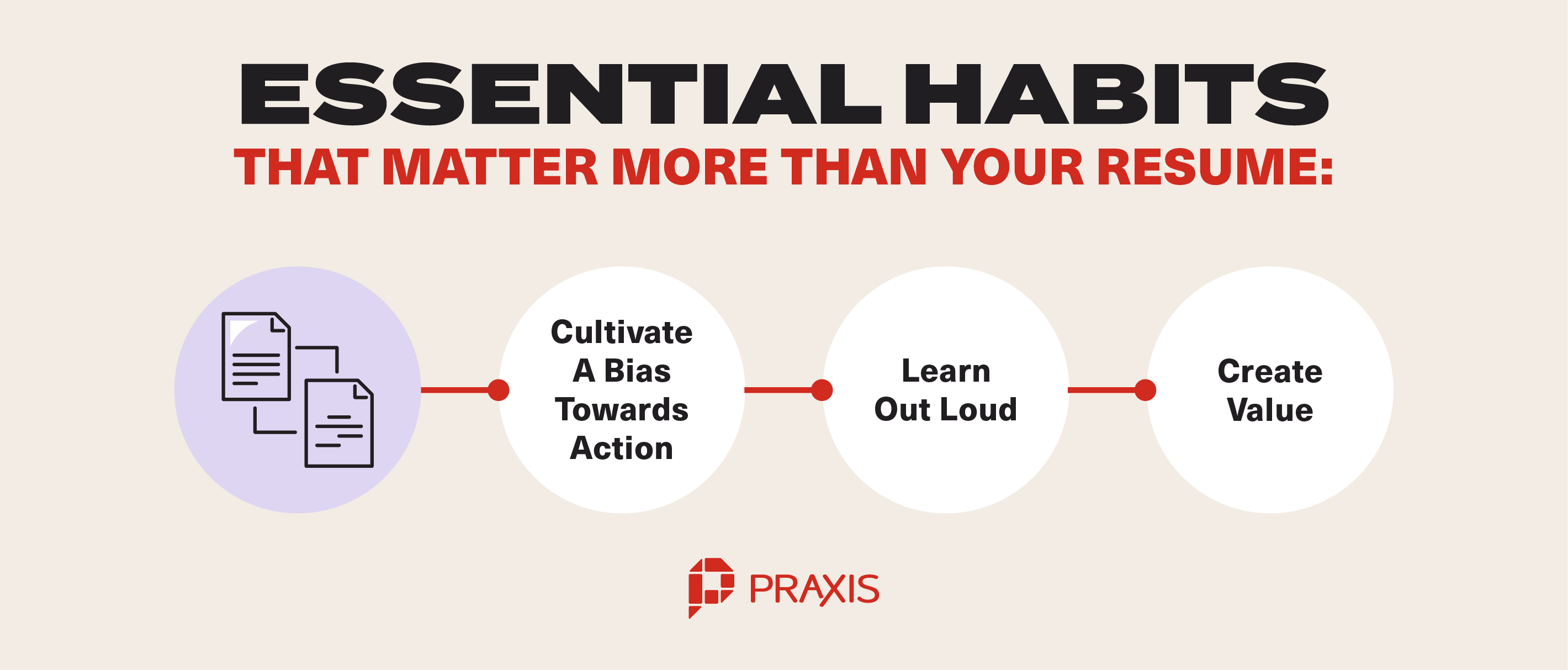
1. Cultivate a Bias Toward Action
Having a bias toward action means taking action instead of waiting for the moment to be just right to embark on a new venture, or until you have more time to start that project, or until your idea is perfect before sharing it with other people.
A bias toward action means not spending too much time debating whether your approach is the right one. It means taking risks, making quick decisions, and taking initiative – and recognizing that the moment will never be quite right, you’ll never have more time, and you’ll never feel 100% ready. Acting won’t necessarily guarantee success, but you definitely won’t succeed if you never take action.
However, in order for this mindset to be productive – and not to result in a string of half-finished projects abandoned when the next great idea comes along – a bias for action requires the long-term work ethic to see your ventures through.
But how do you go about cultivating a bias toward action and developing the work ethic required to succeed? Read our post, Start Now: 3 Ways to Develop a Bias for Action for some ideas.
2. Create Value
Adopting a “value creation mindset” is the surest way to distinguish yourself as a person worth investing in.
What is a value creation mindset? Simply this: focus on what you can do or create that makes other peoples’ lives or jobs easier. It means looking at problems as opportunities. Do you see something that’s not working as well as it could be? How could you improve it?
In order to start creating value, try to match your skills and interests with the gaps and opportunities you see in your industry. Are you great at writing? Write helpful “how-to” blogs related to your field. Great at making apps? Create an app that solves an everyday pain point. Want to land a marketing job? Do an analysis of the existing marketing efforts of the company you’re interviewing at and identify opportunities for improvement.
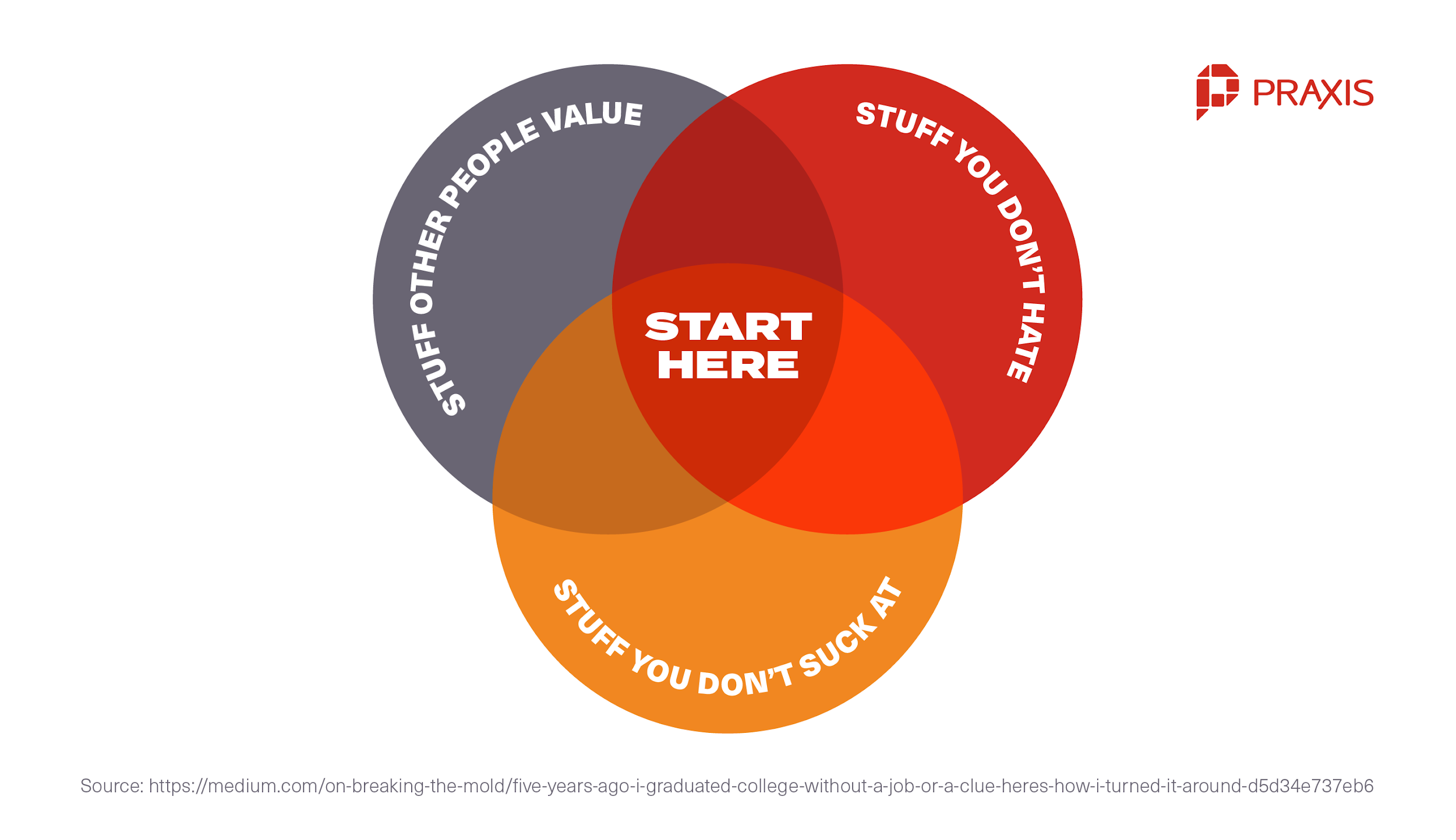
Start creating evidence of your ability to offer prospective employers value through personal projects that showcase your skills and problem-solving capabilities.
Creating a “digital paper trail” that shows people your work – how you operate, learn, and approach challenges – allows you to build your own signal that shows the world who you are, which is far more valuable than a degree.
Learned how to use a new tool? Write a how-to blog or create a YouTube video that shows your results and how you achieved them. Your responses and impressions offer insight into how your mind works and has the added benefit of helping others discover and learn new things. More on this below under “Learn Out Loud.”
For more on adopting a value creation mindset, watch this video:
3. Learn Out Loud
When we’re learning something new, most of us choose to keep it to ourselves until we feel that we’ve advanced enough to impress people. Learning out loud means casting that habit aside and sharing what you’re currently learning as you go along.
How Do I Learn Out Loud?
Simply document your learning activities, whether it’s through a blog on Medium, your personal website, your Twitter account, Facebook, a podcast, a YouTube channel. Don’t overthink it – you can always change or upgrade it later. Just start. Read a book? Write about your impressions and takeaways on Goodreads, Amazon, or your blog. Learn something new? Spend some time answering questions on Quora or seek out a Reddit discussion thread and contribute to the conversation. Travel somewhere new and have an interesting experience or learn something fascinating? Put it online.
Why Learn Out Loud?
What’s the point? How will this make me look good? Won’t it make me seem naïve and inexperienced?
Not so fast. There are plenty of reasons you should learn out loud. Here are a few:
Learning Out Loud Accelerates Your Learning
When you’re in conversation with others learning the same skills as you – and people who know more than you about what you’re learning – you’ll learn faster by discussing your questions, challenges, theories, and experiments. Others might also share useful resources with you that you might not have discovered on your own.
Learning Out Loud Shows Vulnerability and Authenticity
When people (including prospective employers) can see your learning process and observe how you respond to not having all the answers and having to figure things out on your own, they get an authentic glimpse of what you’re like to work with. Allowing people to see you struggling through difficult subjects requires vulnerability and shows strength of character. Learning out loud requires humility, courage, tenacity, and consistency – all of which make you a more appealing person to work with.
Learning Out Loud Builds Your Brand
When people have access to your thoughts and feelings about the content you’re consuming, it gives them a sense of your personality and helps to build your personal brand. More than that, each of us notices and appreciates different aspects of the same thing. Your reading of the same book might be very different from mine, and your review might bring interesting new perspectives to light. Whichever medium you choose to document your learning experiences, sharing your insights can result in content that offers value to a lot of other people.
Learning Out Loud Shows Employers You’re a Good Investment
The world of work is changing, which means that employers are spending large amounts of money to train and reskill employees. As a result, employers need employers who are self-directed learners who regularly upskill themselves. According to a recent Hays survey of 2,000 employers, 77 percent of employers say they’re more likely to shortlist candidates who show a history of continuously upskilling.
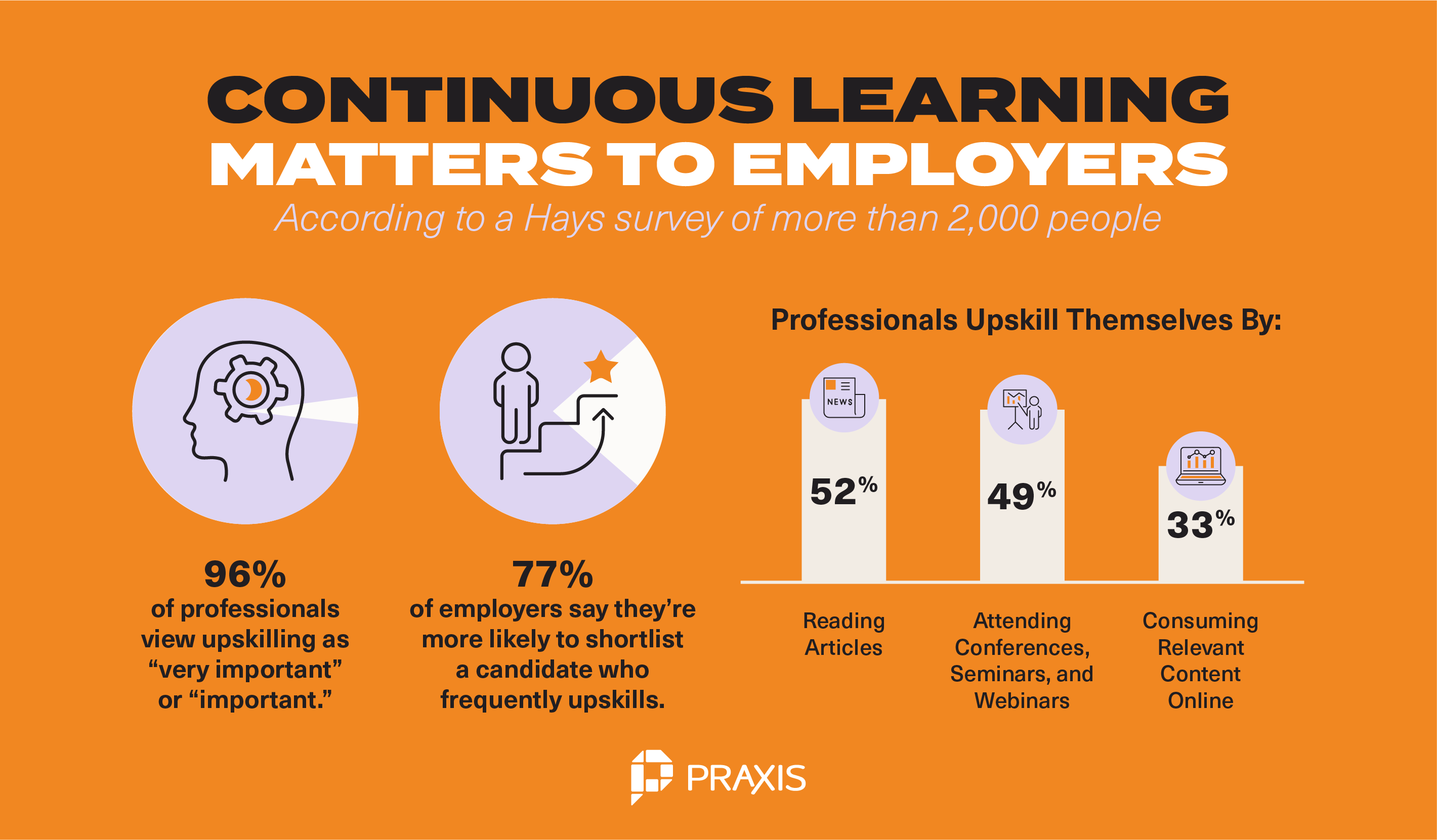
For more about learning out loud, read our blog 3 Reasons Why You Should Learn Out Loud
How to Make a Good First Impression (When You Lack Experience)
To start building that career, first you need to get your foot in the door. And to do this, you’ll need to get an interview, and then ace it.
The good news is, there are plenty of small ways you can hedge your bets by investing some time and energy to make sure you make a good first impression.
Here are our top tips:
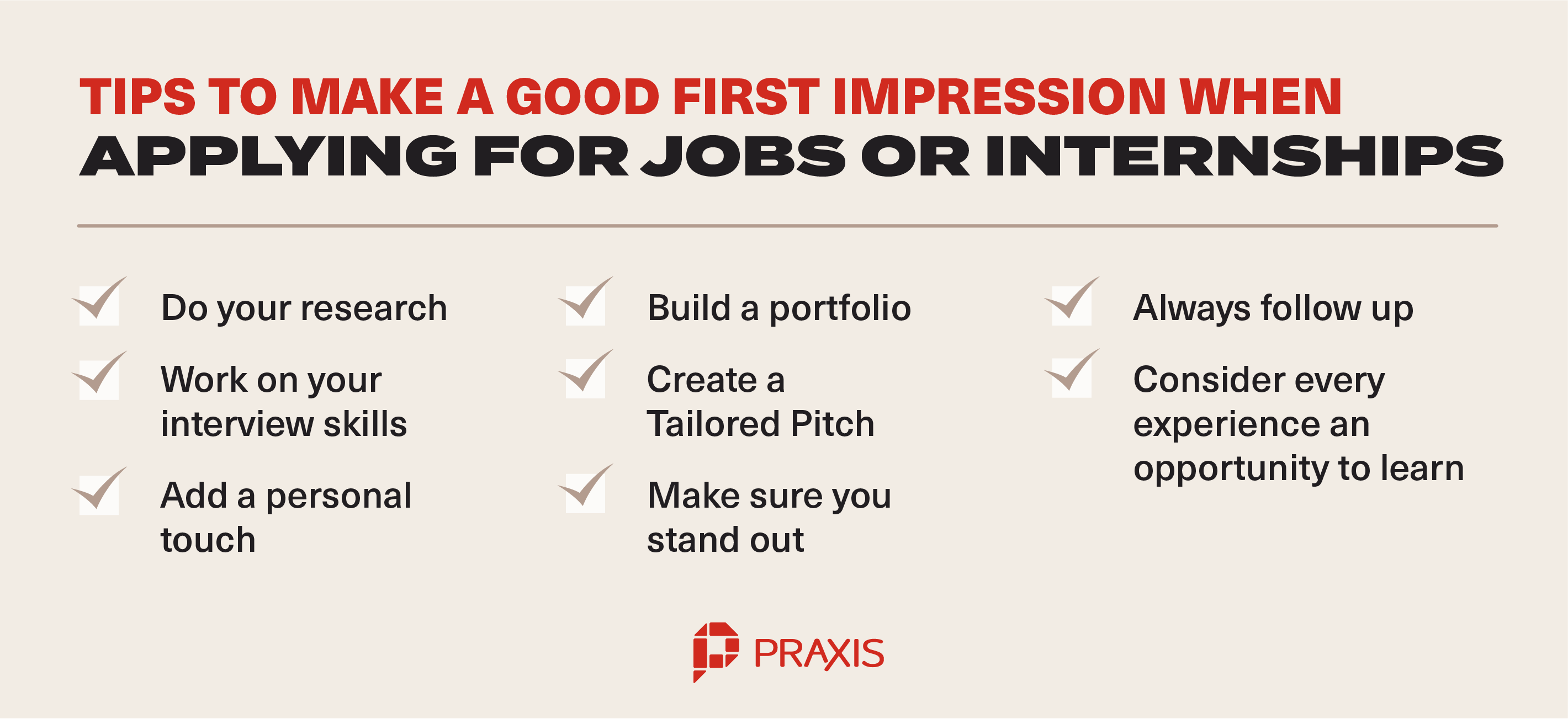
Do Your Research
Make sure to thoroughly research the company you’re applying to in order to get an idea of how they operate, where you would fit into the scheme of things, and most importantly, how you could offer value. Then prepare to show them how you could add value.
If you’re applying for a sales role, take initiative, and compile a list of leads with contact information. If you’re applying for a marketing role, maybe create a quick proposal for a social network they’re not using yet. Just be careful that you don’t come across as overly critical or negative about their existing efforts – you want them to think hiring you will help them, not overshadow them. Knowing the company’s mission and values is crucial, as this will allow you to prepare to articulate why you want to work there and how you would make a difference if they hired you.
Work on Your Interview Skills
Once you’ve been for a couple of interviews, you’ll start to notice that there are a few questions that pop up again and again. One of the best things you can do to work on your interview skills is to prepare a list of potential questions and think about how you will respond to each one if asked. Write down some key points you want to include for each one, using each answer to reveal something about your work ethic, problem-solving abilities, and skills you’ve developed.
The more concrete examples you have of ways that you’ve created value or solved challenges in the past, the better. Also be sure to prepare some questions to ask your interviewers (remember, you’re interviewing them too), and spend some time practicing until your prepared answers sound natural. While you don’t want to seem rehearsed, you also don’t want to get caught completely off guard. Mock interviews can come in handy.
A lot of people dread open questions like “tell us a bit about yourself,” but in truth, this is one of the best opportunities you’ll get to sell yourself and what you can do, so crafting an elevator pitch for yourself is a good idea. If you’re not familiar with the term, an elevator pitch is simply a short, prepared summary of who you are and what kind of value you offer. The idea is that you should be able to sum up what you bring to the table in the time it takes to ride an elevator together. Beyond interview scenarios, elevator pitches come in handy in networking situations.
Create a Tailored Pitch
Instead of focusing your attention on padding a resume to add to the pile of unremarkable and almost indistinguishable resumes that your potential employer has to get through, invest your time and energy crafting a personal pitch deck tailored to the company you’re applying to.
While a resume is basically just a disconnected list of your roles and achievements, a pitch deck gives you the opportunity to connect the dots and create a lasting impression by weaving a compelling narrative that explains how each experience contributed to your personal and professional growth. Read our post on how to build a pitch deck for more information and tips.
Add a Personal Touch
Try to find out who will be interviewing you and research talking points that demonstrate your interest in their work. Have they recently published a blog or given a talk that you could ask them an insightful question about? You could even start building a relationship with them before your interview (or before you even apply!) by responding to their posts on LinkedIn or Twitter. Just don’t be creepy and remember to keep it professional. Don’t go adding anyone on Facebook!
Having someone on the inside who can advocate for you can make all the difference.
A personal touch can go a long way. Learn people’s names, and use them. Mail hand-written thank-you notes right after your interview. Find an interesting article about something you discussed in your interview and send it to the person who interviewed you with a message saying something like “I came across this and it made me think of the fascinating discussion we had last week…” Making it personal helps you to leave an impression. Interviewers speak to dozens of candidates, so anything that makes it easy for them to remember you makes you stand out. Remember, people won’t always remember what you said, but they will remember how you made them feel.
Build a Portfolio
Having a solid portfolio of past projects is really indispensable in demonstrating that you can create value. While every other applicant today has the college stamp of approval and variations of the same list of resume-padding societies and volunteering programs, a portfolio that showcases your capabilities can really set you apart and act as your own signal, as Praxis founder Isaac Morehouse discusses in this video:
Make Sure You Stand Out
Try to make yourself memorable to ensure that you stand out from the crowd. Be thoughtful and charismatic. Not charismatic? Practice. Shake everyone’s hand (maybe not in COVID-time, though). Greet the secretary, by name. Find out your interviewers’ names in advance and use them frequently. Try to work in a question about their personal interests or professional achievements – a book they wrote, an interview they gave, a product they helped launch, a campaign they ran – but don’t be creepy about it. Just say something like “I really enjoyed reading XYZ… Would you mind answering a question about that?”
Make the people you interact with feel special and they’ll remember you for that far more than anything you said or did.
This way, you start creating value from the moment you walk in the door, simply by making others feel good about themselves in your presence.
Always Follow Up
After an interview, be sure to follow up within 24-48 hours. Thank the person who interviewed you for their time, mention how interesting and exciting you find the work, and reiterate what you’ll bring to the table if they hire you.
If you don’t hear back within the timeframe specified by the company, send an email to follow up. Daunting as it may seem, a polite email can be hugely helpful in reminding busy hiring managers that you exist, or reminding them of the ways you could add value that you discussed in your interview.
Saying something like “It was a pleasure meeting with you two weeks ago and I’ve been thinking about our conversation about XYZ. I wanted to check in to see whether you have an update on the status of my application because I’d really love to hit the ground running with this idea…”
Even if you didn’t get the job, following up allows you to move on and refocus faster instead of waiting for weeks without hearing anything back.
Consider Every Experience a Learning Experience
Had a bad interview? Didn’t get the job? Got ghosted by a recruiter?
While each of these experiences genuinely sucks at the time, odds are, each of them contains a lesson or two. Spend some time reflecting on the factors that were within your control that you could have handled better. Could you have been more prepared? Could you have done things differently? What else could you have done to stand out? Do that next time.
Consider sending a follow-up email to ask the hiring manager whether they would mind sharing why they didn’t select you for the job, and how you could become a stronger candidate in the future. Be respectful of their time and ask whether they would be willing to spend five minutes on the phone with you, and send them an invite through a scheduling tool like Calendly to make this as easy as possible for them.
While asking this question may feel embarrassing and awkward, it might lead to an insight that changes your whole approach the next time and lands you the job. Plus, it shows prospective employers that you’re serious about your personal and professional development – something they’ll remember if their first choice candidate drops out or you apply for other roles with them in the future.
Struggling to Get Your Foot in the Door? Use the Side-Door
Sometimes the best way to get your foot in the door is using the side door. Below, we’ve outlined three methods you can use to do just that.
Intern
When choosing between equally qualified candidates, internship experience can be a significant differentiator for employers. Moreover, internships are a great way to get your foot in the (side) door, especially when you consider that 56.1 percent of interns were transitioned into full-time employees in 2019.
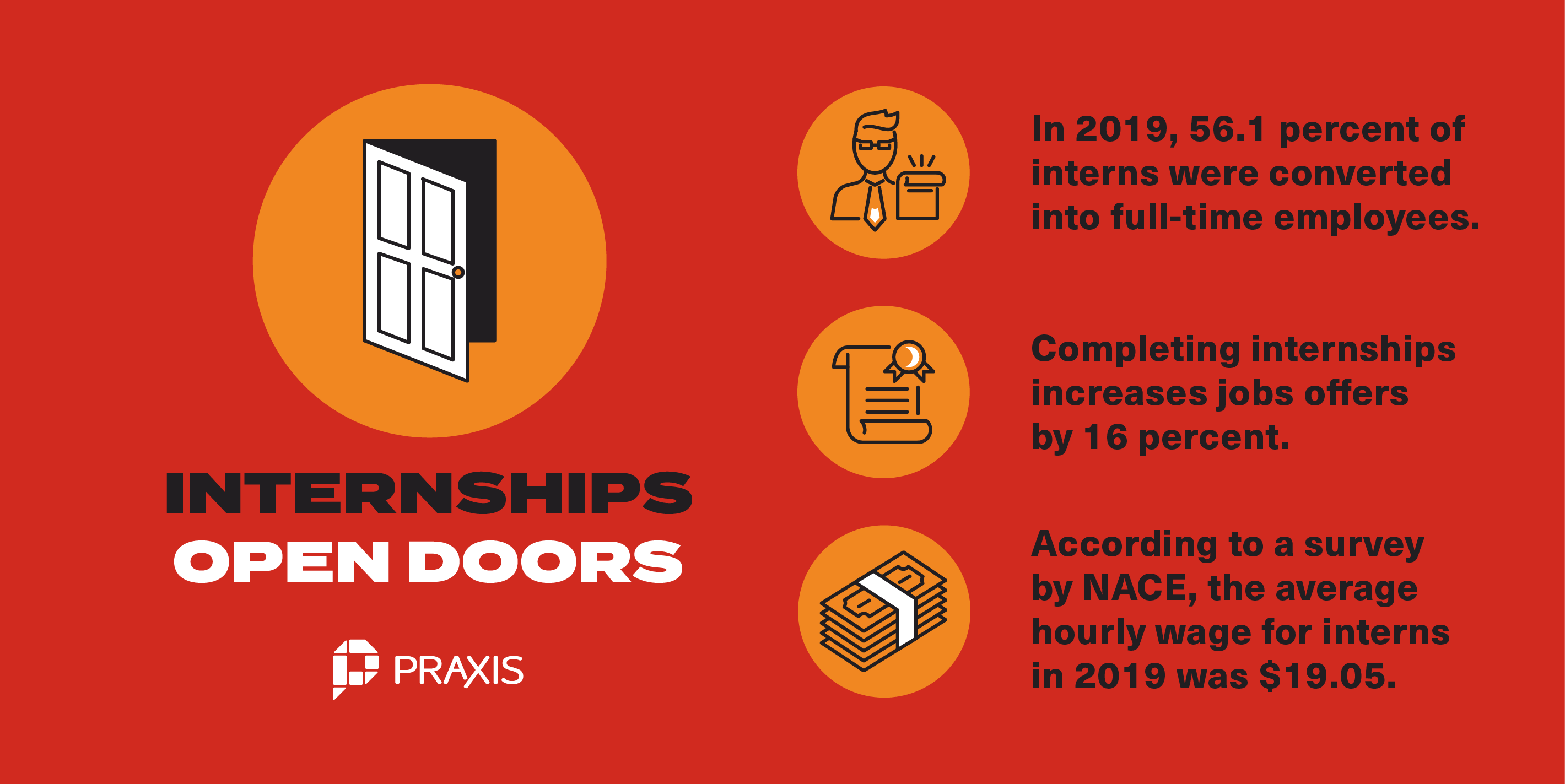
Internships allow you to learn valuable skills, gain real-world experience, build your network, and show your prospective employers your mindset, work ethic, skills, and willingness to learn. This makes them a great way to show employers your ability to create value.
Even if you get an internship that isn’t directly tied to the career path you have in mind, an internship can be a way to get your foot in the door to work your way up to your dream role.
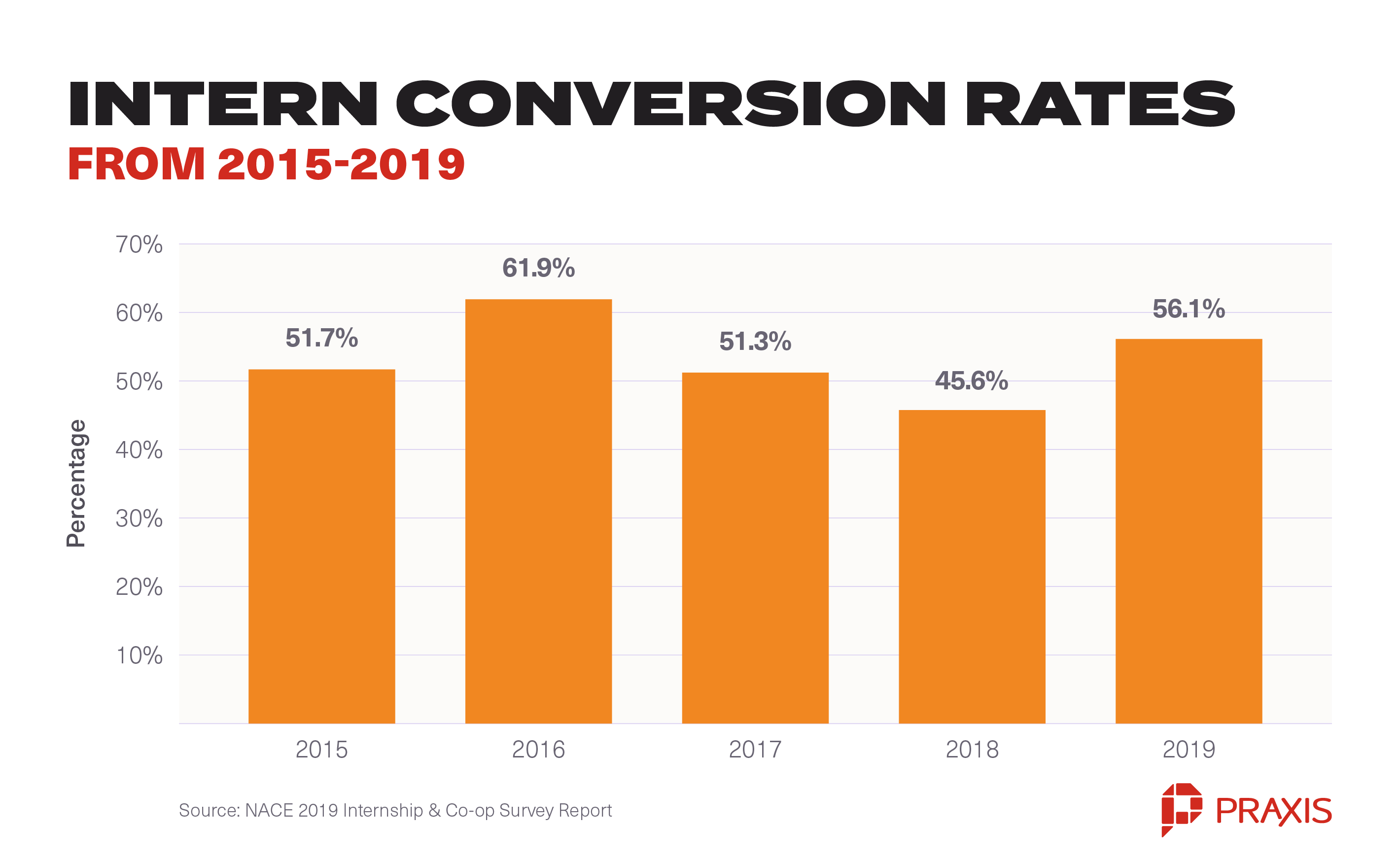
Volunteer
Like interning, volunteering is a great way to get your foot in the door. Doing work for free might seem counterintuitive, but it can give you an opportunity to demonstrate the kind of value you can create, gain experience, build your portfolio, and expand your network – all of which will help you in the future.
Choose an Easier Field
If you’re a young person who is looking to get started and feels overwhelmed by a lack of experience, one of the best things you can do is pick an easier field to break into. Start doing social media or photography for companies. It will allow you to get your foot in the door, begin a dialogue with an employer, build relationships, develop a portfolio, and most importantly, it will get you introduced to the world of business.
You might enter an entry-level job in social media but quickly become the head of a manufacturing division. You might start as a web developer but later move to the marketing department.
While it’s true that some fields are more difficult to enter without a degree, it’s also true that once you begin your career and develop a portfolio for yourself that proves you’re somebody who can get things done, few people will care about your education status.
For the ambitious, energetic, and creative young person, there are endless opportunities to create value at a company. Once you get your foot in the door at a company, you can start exploring these other opportunities.
Notice a system that you helped implement in the marketing department that might help the business development team? Bring it to them and help them implement it. Work with a client who has a cool way of streamlining their product manufacturing? Learn from them and take it back to your employer.
That’s how careers are built. They aren’t built by following a single track towards higher and higher levels of positions within the same department or field. They’re built by looking for opportunities to create value and following those opportunities wherever they may take you. The best way to have these opportunities is to just get started in any position you can.
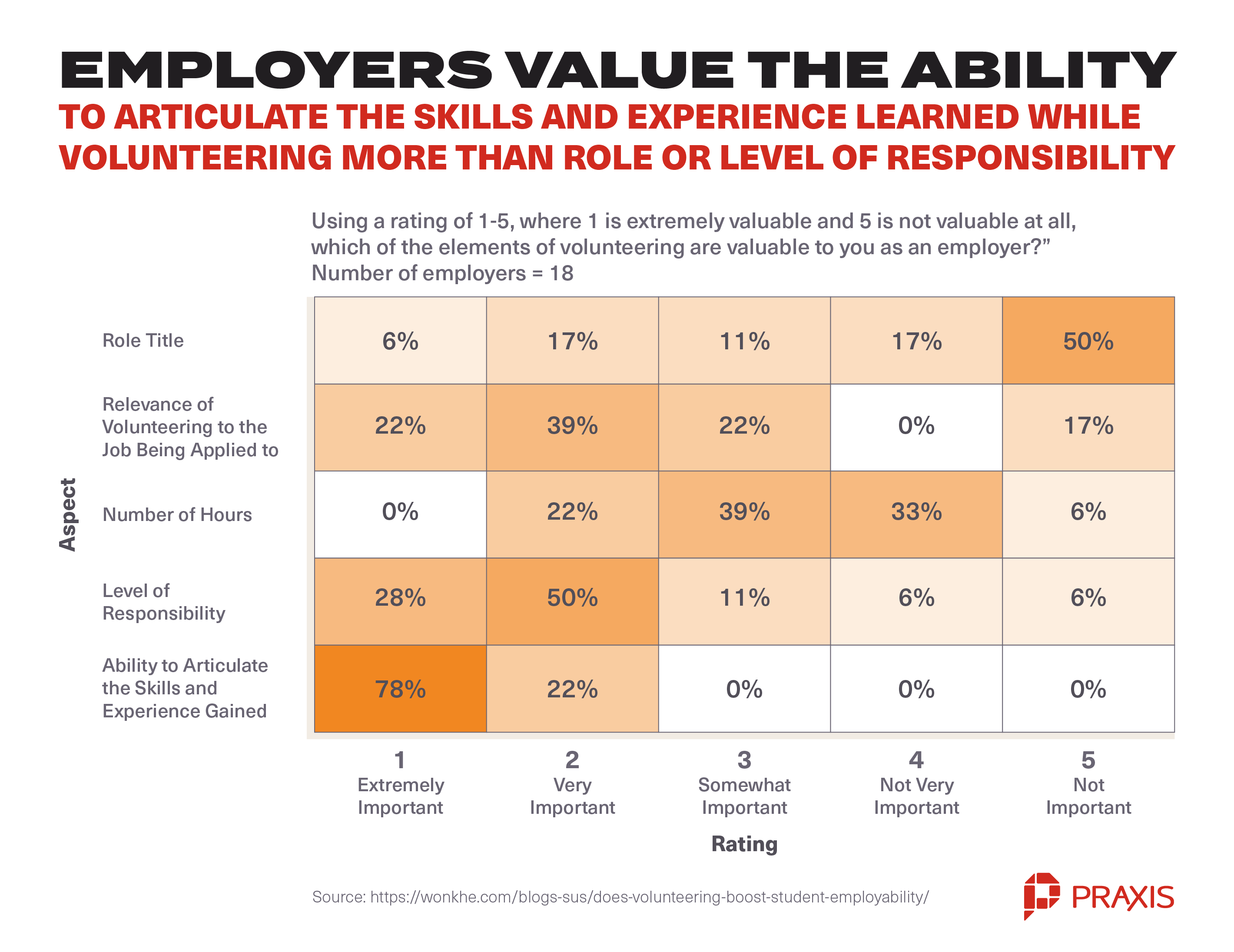
Placement
Landing a job placement through a skills bootcamp program like Praxis is a great way to get your foot in the door. Praxis is a college alternative designed to help you build your skills, embrace self-driven learning, gain varied work experience, cultivate a value-creation mindset, and develop a bias towards action.
During the six-month bootcamp portion of the 12-month program, Praxis helps participants to identify and apply to full-time jobs, coaching them through the application and interview process. After they’re hired, Praxis participants continue to receive mentorship and support through weekly check-ins with our network of experienced professionals to help them start strong and make the most of this opportunity.
At the end of the 12-month program, 93 percent of Praxis graduates are employed full-time, and because Praxis believes in putting skin in the game, participants who don’t get hired full-time don’t pay a cent.
At Praxis, our goal is to give you the tools to start your career strong. We believe that the best way to achieve this is by helping you to discover how your interests and passions are valuable, helping you develop relevant business skills, growing your professional network, and guiding you through a proven process to win opportunities and open doors.
Explore Self-Directed Learning to learn more about how Praxis works.
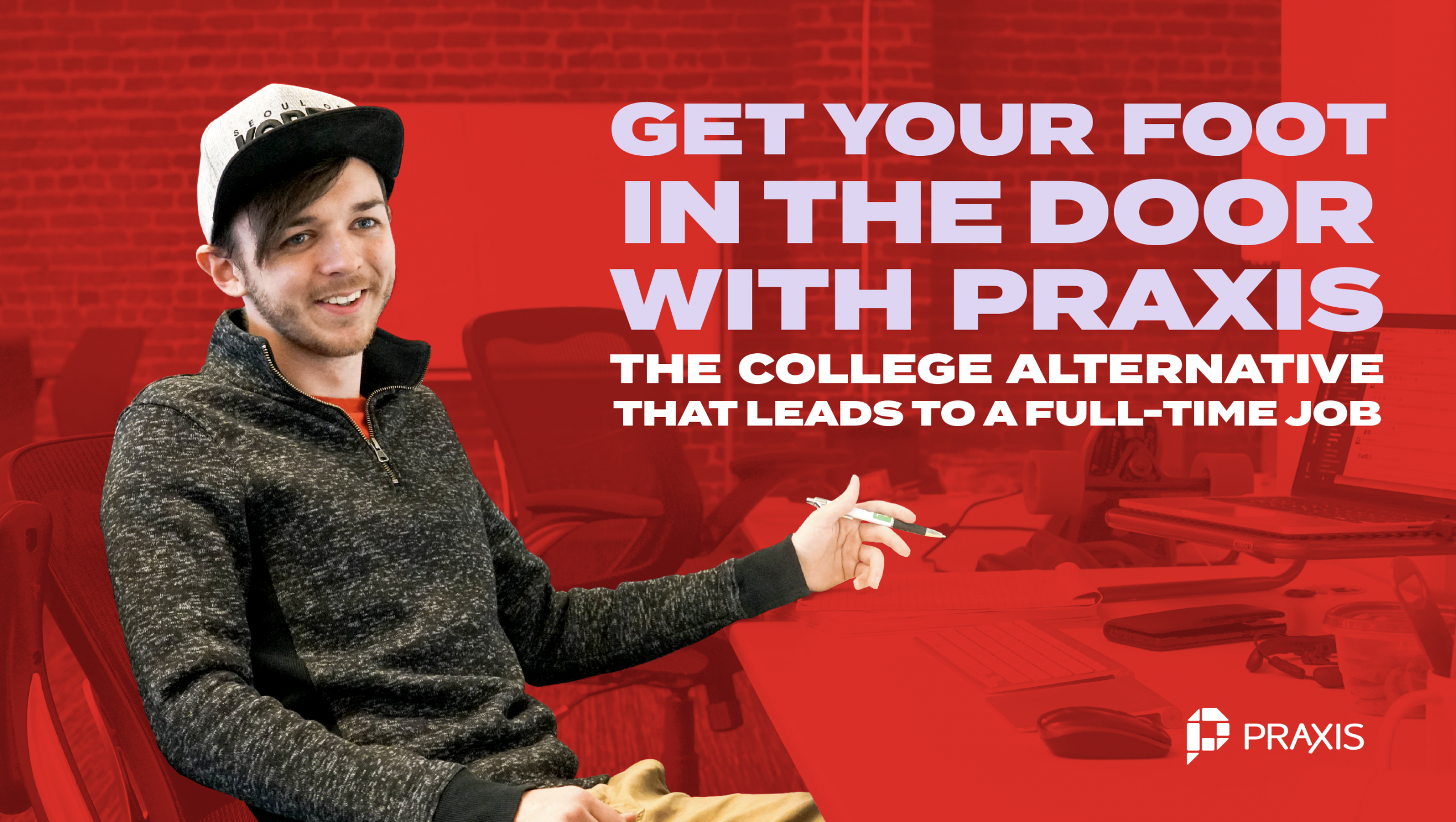
Tags:
Career DevelopmentNovember 10, 2020
